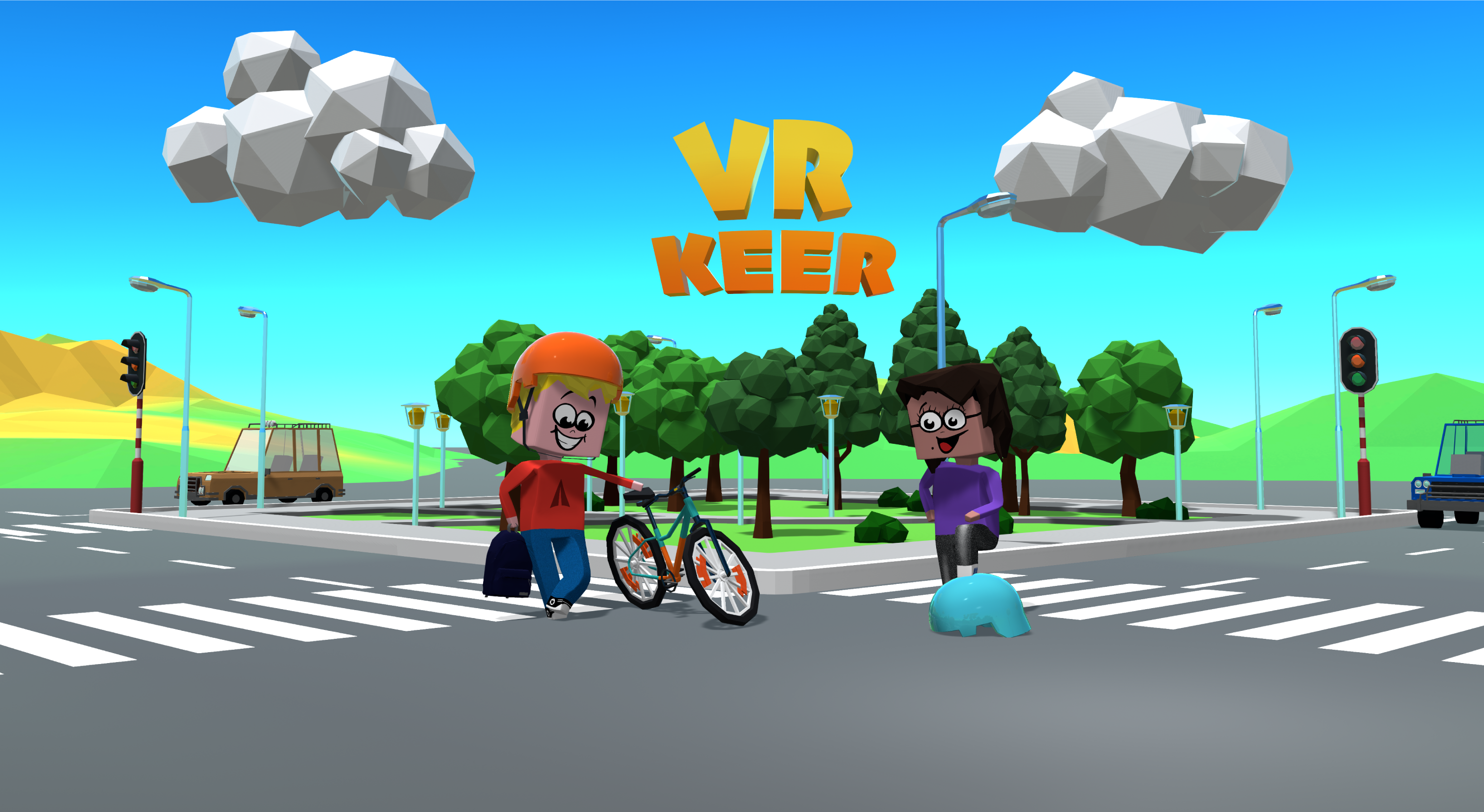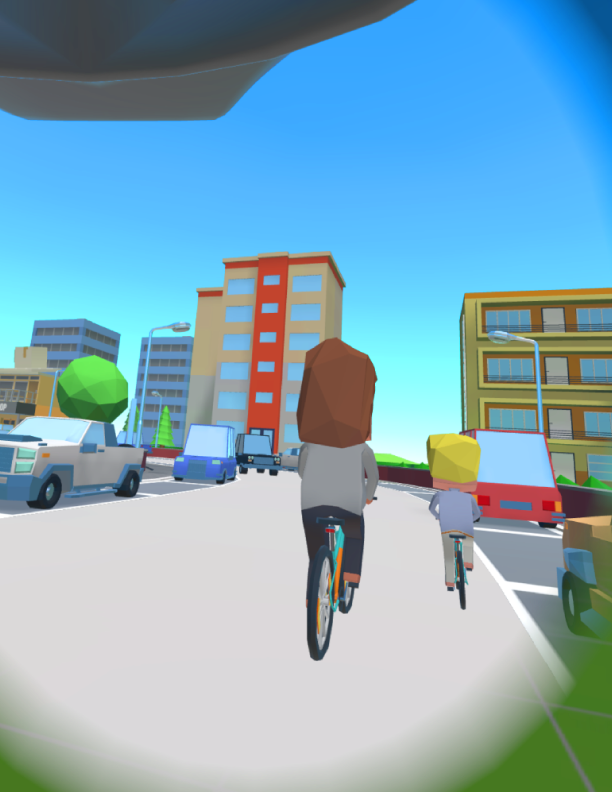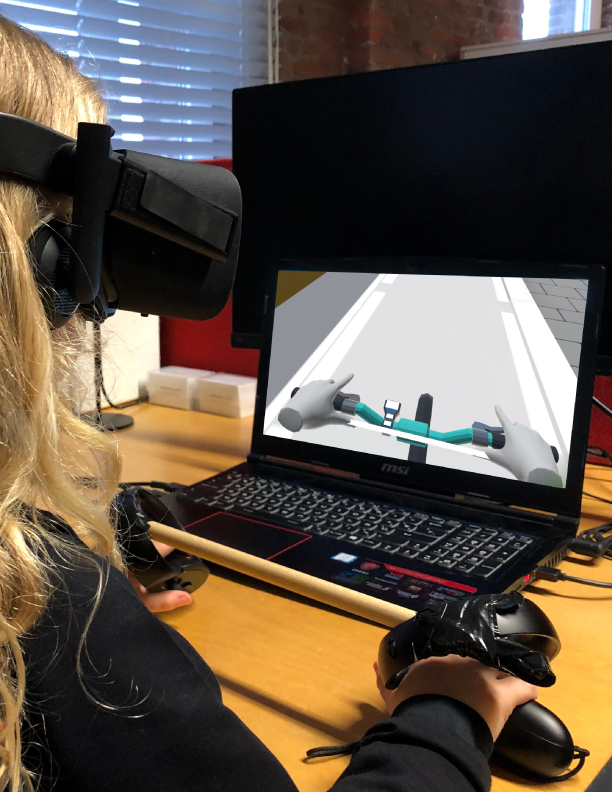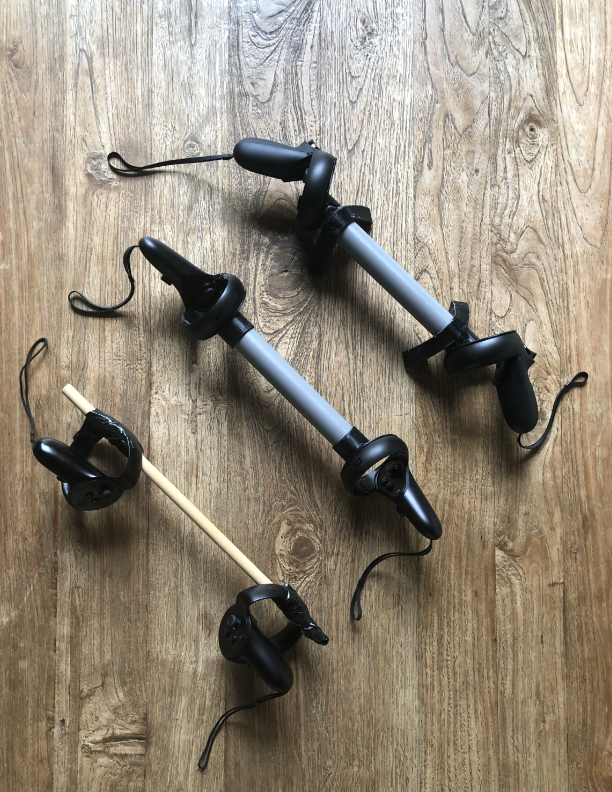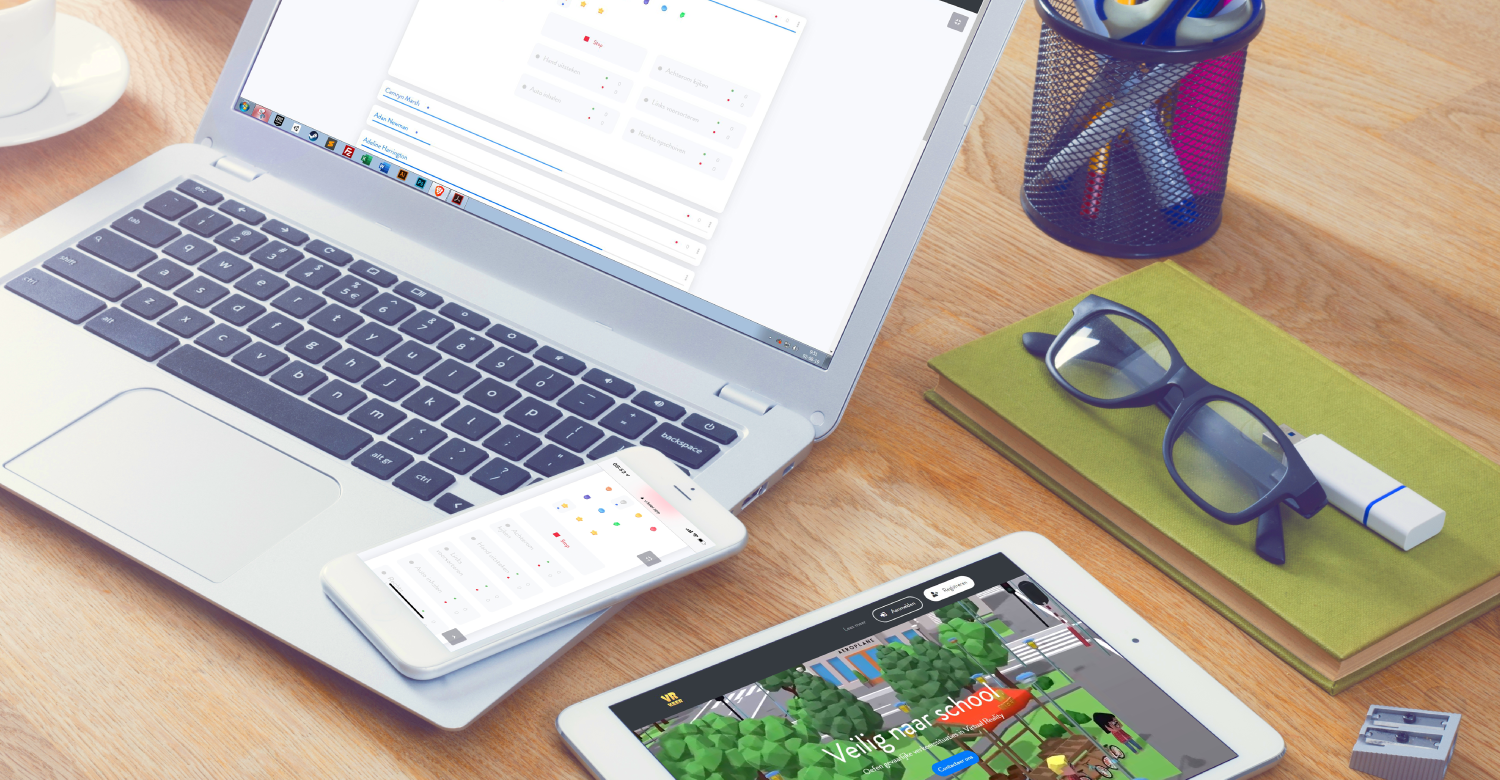Project highlights
Virtual Learning
Education and learning is a very wide field which continues to grow. The word ‘education’ typically reminds us of schools and students, but today, more and more educational products find their way to our work environments and our careers as a whole. Being able to learn quickly and easily develop new skills is a trait that will become enormously important in the near future. As the world gets more connected, complex and everchanging; companies need to be able to adapt and be flexible towards the needs in the market. And so we, the people working in those companies will have to be able to cater to those needs. There are many reasons why Virtual Reality is the ultimate technology for education and learning
“A VR sandbox where children can safely play, learn and fail”
Retention and evidence-based instructional design
VR and Virtual learning is a new practice. Getting virtual educational tools right and designing them to get the best results is a relatively new science. While designing the VRKeer application, we worked together with Carl Boel from ‘Virtual learning is reality’, an e-learning expert with a passion for evidence-based instructional design. VR allows for total immersion and intuitive interaction, in a secure, controllable and perfectly trackable environment. A sandbox where we can safely play, learn and fail forward. When teaching children how to handle traffic when riding their bikes, such a sandbox provides the right environment for learning.
Interactive simulation
VR is a technology which presents content in the same way, we people have evolved to interpret reality around us. Instead of watching a 2D page or screen and having to translate that in the back of our minds to the 3D-world we live and act in, content is presented in our 4D (space and time) native reality. This means that other technologies fail to represent the ‘learning space’ as it is. We had to learn trough interpretations, overviews, tables, images, etc... which aren‘t totally representative. Today, we’re able to provide a space that copies the real world, and lets you interact with it, ln the same way as one would in the real world! To keep that real and intuitive aspect, Achilles Design designed a 3D-printed steering wheel, in which we can click the Quest controllers. This way, even the bike handling is very close to as it is in the real world.
“Teachers can follow, evaluate and intervene while the students are learning”
Belfius Smart Belgium Awards 2018
The VRkeer application was nominated in 2 categories for the Belfius Smart Belgium Awards 2018, once for smart education and once for the audience prize, which we were very proud to take home. A first for virtual education in Belgium!
“Today we’re able to provide a space that feels like the real world, and lets you interact with it in the same way as one would in the real world”
Learning Managment System
The VR application is coupled with a realtime browserbased learning managment system. For every class session where children are learning in VR, the teacher sets up a class and couples the devices to the students using a 5-digit code. During the sessions, teachers can follow and evaluate, while the students are learning. They see which tasks a given student has issues with, and how he/she is doing in the game. The teacher can intervene and take control over which tasks and which scenario’s the student should play next, in real time! This allows for very short feedback loops, which improve retention.
Gamification
Each scenario in the game teaches a new concept. For example: safely overtaking another bicycle. For this scenario, there are different difficulty levels and different environments to learn in. When a student safely finishes a given scene, he/she is awarded a badge. The completed difficulty levels are indicated with stars. The point of the game is to win all badges, and to get 3 stars for each badge.
Distribution
VSV now offers boxes containing sets of the Oculus Quest, together with the 3D-printed steering wheels for schools to rent out. Teachers are now able to prepare their students in a far more immersive way for the European standardized traffic test. Thanks to VR we are now able to train and test student’s awareness in traffic.
